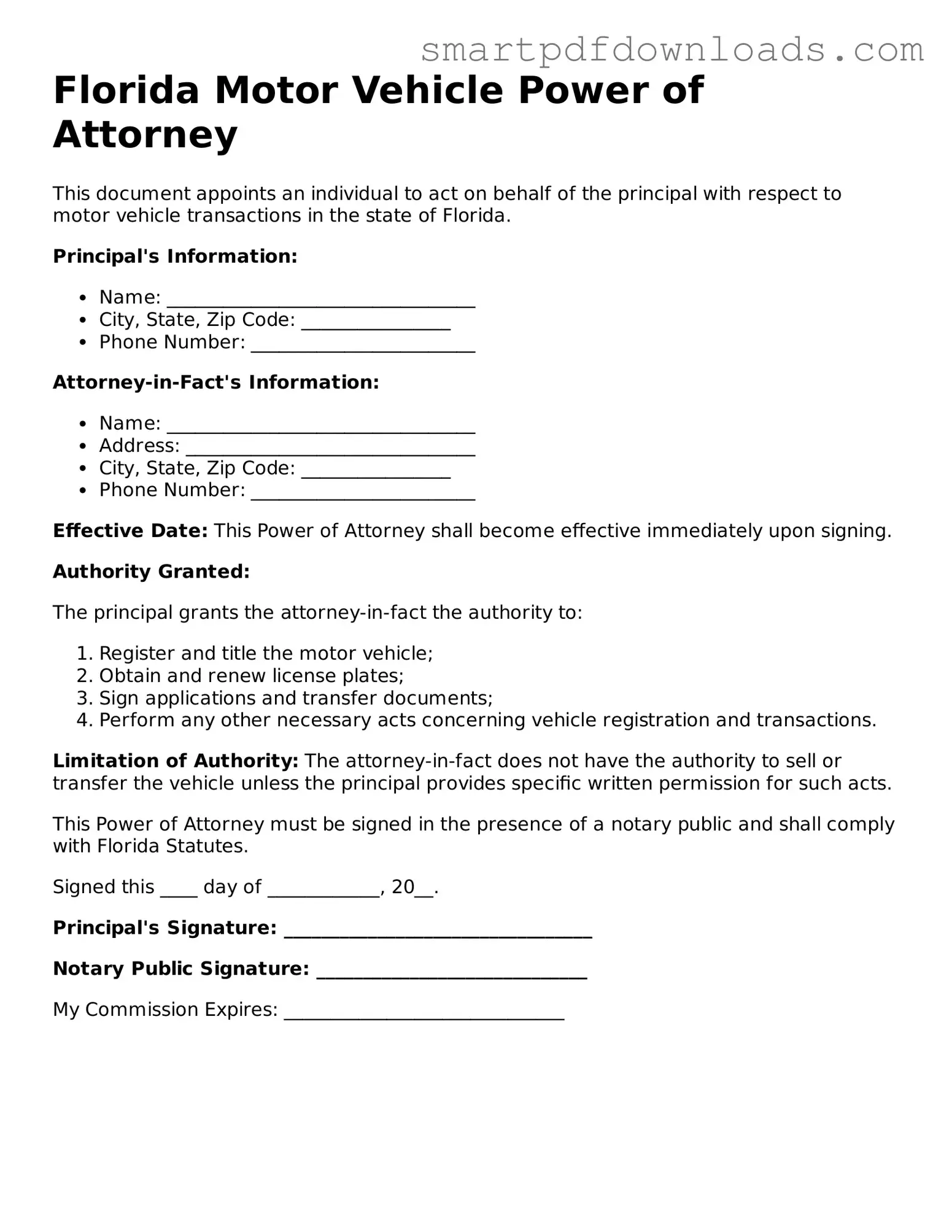Legal Motor Vehicle Power of Attorney Form for the State of Florida
The Florida Motor Vehicle Power of Attorney form is a legal document that allows an individual to appoint someone else to act on their behalf in matters related to motor vehicles. This form can be particularly useful when the vehicle owner is unable to attend to transactions such as title transfers or registration renewals. By granting this authority, the vehicle owner ensures that their interests are represented effectively and efficiently.
Edit Motor Vehicle Power of Attorney Online

Legal Motor Vehicle Power of Attorney Form for the State of Florida
Edit Motor Vehicle Power of Attorney Online

Edit Motor Vehicle Power of Attorney Online
or
⇓ PDF File
Finish the form and move on
Edit Motor Vehicle Power of Attorney online fast, without printing.